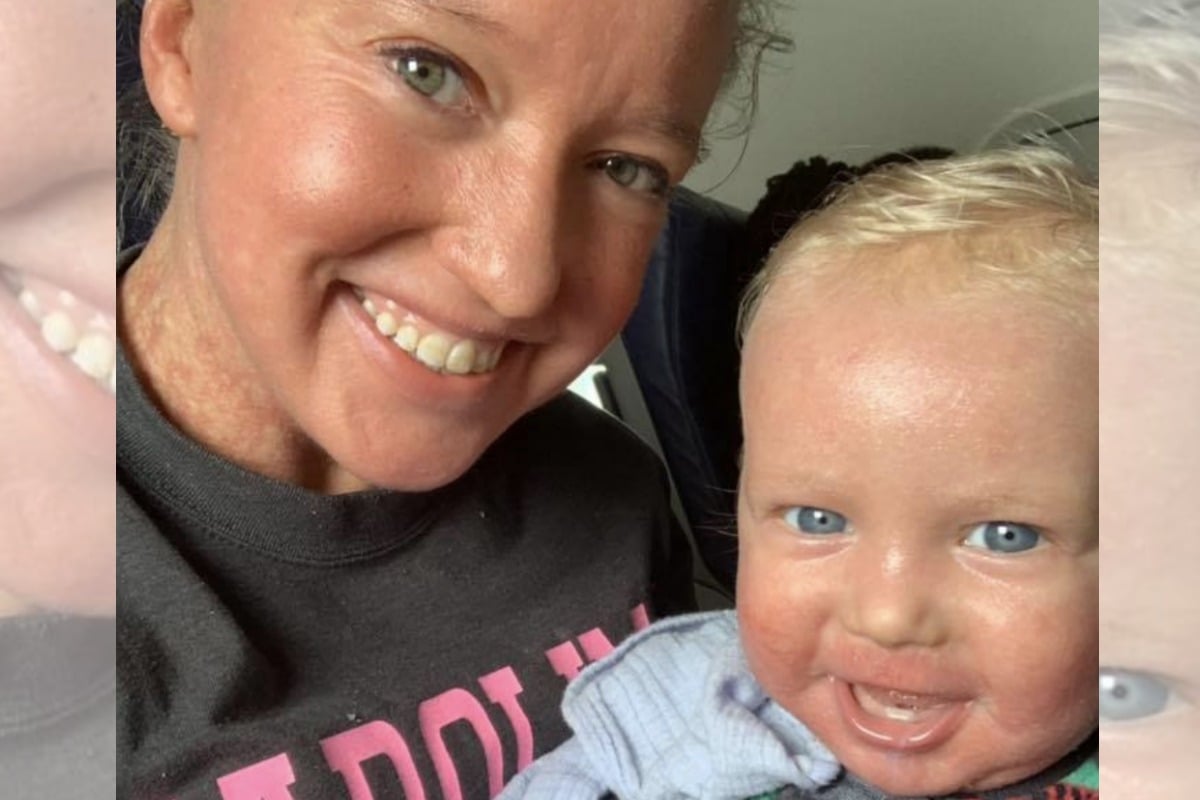
Mother Jordan Flake, and her baby son, Jackson, were on a domestic American Airlines flight when they were removed from the plane due to the appearance of their skin.
The woman and her son from South Carolina in the US both have ichthyosis, a genetic disease which has symptoms that include thick, scaly, dry and cracked skin, according to The Royal Children’s Hospital in Melbourne.
While there is no cure, ichthyosis is not contagious, and is not caused by any sort of infection. Unfortunately, that information wasn’t accepted by the crew of the flight the Flakes were on; which is why they were asked to disembark.
The frustrated mum wrote a now viral post on her Facebook page, explaining what happened:
“Before take off a man (employee called on flight to handle the situation) came up to my row and asked the two men sitting next to me to get up.
“He then quietly asked me about ‘my rash’ and if I had a letter from a doctor stating it was OK for me to fly.
“I explained to him that it was called Ichthyosis and it was a genetic skin condition.”
The attendant discussed the matter with the rest of the crew, and “apparently also googled it during that time.”
The information he received on Google wasn’t enough to convince him that the Flakes weren’t a danger to the other passengers, and the mother and her baby were asked to disembark.
Adding to the difficult situation, Flake overheard some comments from a flight attendant that only made the situation worse.


Top Comments
So we should take people's word they are not sick nor contagious?
I would say Icthyosis would be a pretty wild thing for a person with an acute rash to just make up on the spot.
Firstly, American airlines are all universally terrible so I'm not surprised the staff were rude - it is their default setting. However, I do think they should have a right to question people with visible rashes and the like (though should do so respectfully and privately). Reading between the lines, I'd say airline staff have been asked to be on the lookout for anyone with signs of diseases like measles, which would represent a disaster if someone with the disease were to fly. Such conditions are highly contagious and could potentially kill individuals who were exposed. The problem occurs when you have laypeople (ie airline staff) charged with the responsibility of determining medical fitness to fly. They're not qualified so of course they're going to be suspicious and defensive in their approach.